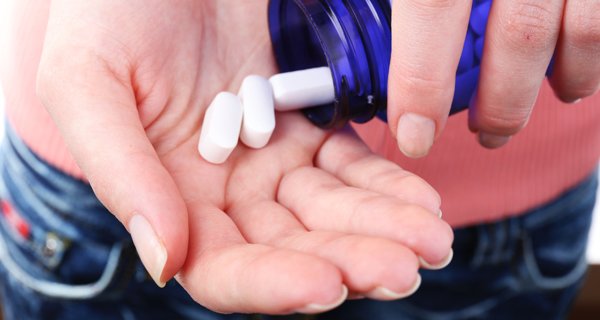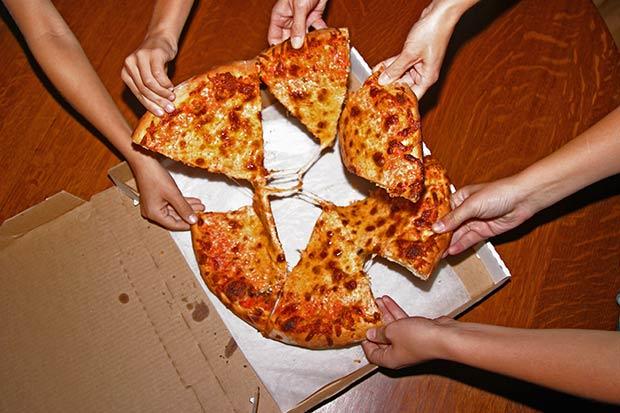I Hated My Friend for Losing Weight
Val's Gastric Bypass Surgery
When I was a little girl, my uncle called me "Fatstuff," and I've lived up to the name most of my life. For me, getting fat is a piece of cake (or a bag of Doritos), and I was a classic yo-yoer. As a result, I had always felt a little awkward around thin women; it seemed that they had some insider knowledge I wasn't privy to. For insight and support on this and hundreds of other topics, I relied on my friend Val. Though we lived about an hour apart, we talked nearly every day. We had lots in common — including the ups and downs of weight loss. Like me, she cycled between thin and chunky, but her weight skyrocketed to 260 pounds after her daughter was born. At five-foot-eight and 185 pounds, I was hardly a slip of a girl. But compared to five-foot-four Val, my own weight concerns seemed insignificant. She was obese; I was merely overweight. She wore plus-size clothes; I could still squeeze into 14s and 16s. As much as I hate to admit it, I took comfort in the fact that, for once, I wasn't "the fat one."
Then, in 2003, the husband of a mutual friend lost 180 pounds with gastric bypass surgery, and Val started to consider the procedure for herself. Outwardly I was supportive. I had watched Val try diet after diet without any success and I knew how much her weight was affecting her energy level and her health. Inside, though, I was worried. Surgery was a scary proposition; nearly three in 200 people who get the operation die. I didn't want to lose my friend — and I meant that in more ways than one.
All my life — as a chubby child and an overweight teen and young woman — I had been overlooked, even in my closest friendships. I was just the fat girl: good-natured, well liked, but unessential and often left out. Several times at school, I had friends who magically moved into the popular crowd and never spoke to me again.
I reminded myself this wasn't high school. Val and I had been friends for years. But the foreboding lingered. When Val got slim, would I become dispensable? The day she went into the hospital, I joked to her anxious mom, "I love Val, but God help her if she becomes a skinny bitch." Her mother was not amused, and unfortunately, I was not really joking.
Val's Total Transformation
"Oh my God! You look fantastic." I first saw Val at her daughter's school play two months after the operation. She had already shed more than 40 pounds. "I can't buy too many new clothes," she said, "because I'm losing weight so fast." She was delighted by the quandary, and I was genuinely thrilled for her.
At the seven-month mark, though, my worry returned full force. At 180 pounds, Val now weighed less than I did. I fluctuated between resentment — no fair, she didn't even have to try! — and feeling bad for being so petty about my sentiments. I vowed to rise above my jealousy and use Val's success to motivate me. If I started right away, I could catch up with her.
But despite my best efforts (Weight Watchers, Atkins, diet shakes, nutrition bars), the scale refused to budge. My age (40s), a sluggish thyroid, and a desk job all conspired against me, and I lost weight by the half ounce, only to regain it all with one extra dessert. Val tried to nudge me along the path to fitness. One day, she invited me to go bike riding — just one of the many new activities she mastered — then sailed ahead as I puffed to keep up. I came up with a new name for her: The Exercist. As Val neared the first anniversary of her surgery, 100 pounds lighter, I pretended to be happy. But I felt ungainly next to her, and ashamed that I couldn't get my own weight under control.
"This morning I got into a size 10!" she reported the next time we spoke. "Wow," I replied through gritted teeth. "Super, Val. Keep it up." Ugh. I hated myself for resenting her. What kind of friend was I — what kind of human being — to begrudge my friend's success?
Admitting My Envy
The day she cleared out her closet for a new wardrobe, Val invited me over. I watched with dismay as she hauled out dozens of dresses and jackets, most of them voluminous, and tossed them on the bed. "I can't wear these anymore," she said airily. "I thought you might like to have them."
"But they're too big," I sputtered, holding up a gold suit that must have been a size 22. "I mean — I wear a size 16, tops."
Val scrutinized me, then the suit, then me again. "Try it on, at least." I gaped at her, astonished. Did I really look that heavy? Too embarrassed to protest, I actually took some of the clothes and thanked her. But deep down, I was wounded. No, I was furious! I admit I felt superior to Val when she was fat. Had she sensed that? Was she getting even with me now?
In a burst of indignation, I started a new round of diets, each one more austere than the last. But after a few days of deprivation, I always ended up bingeing. The day I hit 203 pounds — the most I had ever weighed — I collapsed on the bed in tears of frustration.
Once I was cried out, though, I could think more clearly. None of this was about Val, really. It all stemmed from the way I had dealt with weight and self-image my entire life. My attitude and approach hadn't evolved much from when I was a teenager and lost 30 pounds in a few months eating nothing but hardboiled eggs. Right then, I decided to stop the destructive behaviors that kept me twisted into emotional knots, starting with dieting. I realized I would never lose weight or, more important, be happy with myself, if I didn't, at last, focus on what drove my overeating.
Facing My Own Demons
Bit by bit, the answers emerged. Since childhood, I'd believed I was inferior to anyone who was prettier or thinner. Comparing myself to obese Val made me feel good; next to thin Val, l felt terrible. Now I realized that no matter how much I loved and admired my friend, I didn't want to measure myself against her or any woman ever again. It goes against everything I profess to believe about personal worth.
That said, I really dislike being overweight. It keeps me tentative about life. It holds me back professionally. And right or wrong, it makes me feel I'm destined to be alone, because no man could love me as I am. By taking charge of her weight, Val had unwittingly thrown down the gauntlet, showing me that if I stayed fat, I would be living a half life — safe, detached, and lonely. It was time to change — not just my weight, but my outlook. I had started by being candid with myself. It was important to be honest with Val, too. One day I gathered my courage and called her.
"Do you know how mad I've been that you look so great?" I asked. "I know I'm not supposed to feel this way, but you remind me I'm out of control. That scares me."
Her response surprised me. "Do you know how it feels," she countered, "when my own friends say, 'You look fabulous — I hate you'? At first everyone was excited. Now I get these little digs and backhanded compliments. Isn't anyone happy for me?"
We talked it all over. From my perspective, Val had flaunted her success and her sexy new shape. Even her overtures of friendship — inviting me to go bike riding, giving me some of her old clothes — were suspect. She explained that she certainly didn't mean to hurt me. But what about the fat clothes, I pressed? "Marjorie," she said, "there were plenty of medium-size outfits in the pile too."
During our long conversation, I finally understood the price Val paid for her thinness. She was happy with her new appearance, but the surgery and the recovery were very hard. Because of her jerry-rigged gastrointestinal system, she won't be able to eat more than a few bites of food at a time for the rest of her life. Val had lost years to obesity and to the depression and isolation that go with it. At times, she had literally been afraid that she would die. So, if she shows off a little now, well, she deserves it.
Taking Control of My Weight
Since I stopped "dieting," I've lost 23 pounds. Instead of looking for the quick fix, I watch portions, limit refined carbs, sugar, and fat, and drink oceans of water. For exercise, I work out at home and a few times a week go to the local humane shelter and walk the dogs for miles. Sometimes I still get a twinge of envy when I pass a woman who's in fantastic shape, but instead of wallowing in the feeling, I tell myself to be proud of the way I've dealt with my problem, delving deep to learn the truth about its origins. I know it will take a year, maybe more, before I get down to fighting trim, but in the meantime, I savor the small victories: more-developed triceps, a blouse that buttons without gaping. Now I know the only person I have to measure up against is myself.
Originally published in Fitness magazine, April 2006.
-
The 8 Worst Foods In Your Fridge
Most people think of their fridge as a nutritional safety zone, home t
-
How to Drink Apple Cider Vinegar
Apple cider vinegar is a fermented liquid made from apples. It is hig
-
How To Lose Weight A Few Seconds At A Time
Losing weight is a process and a journey which is made up of small st
-
How To Stop Binge Eating At Night
So imagine this, you just spent all day following a solid diet
-
How to Put Your Dog on a Diet
If youve noticed your dog packing on the pounds, dont be surprised. M
-
10 Easy Ways To Lose Weight Without Starving
You can stage a coup on calories without ruining your life or eating a
- DON'T MISS
- Right Diet Regime Help Reduce Weight
- Right Spot To Get More On Weight Loss Pills
- Finding The Right Weight Loss Program Is Possible
- Make Over Your Inner Eating Monologue
- Weight loss tip # 124 – Buy a smaller size pair of jeans
- Weight loss tips for controlling hunger
- The 10 Best Winter Foods For Weight Loss
- Guide On How To Lose Weight Fast
- How To Lose Weight And Perfect Natural Herbal Remedies For Weight Loss Or Obesity
- Fast Weight Loss Plans And Perfect Overweight Treatment




